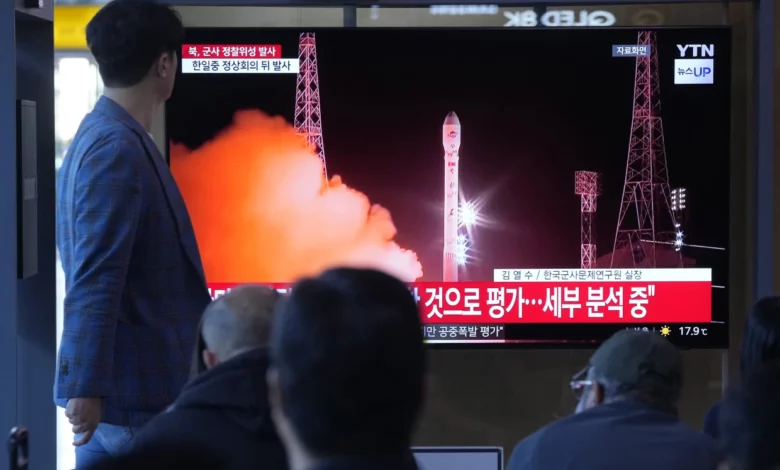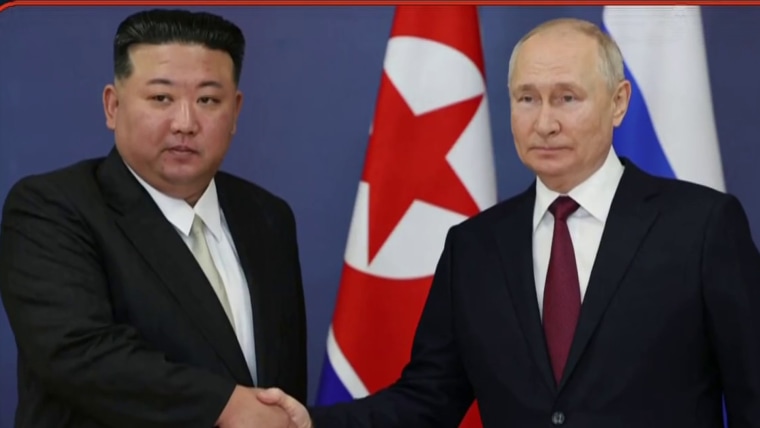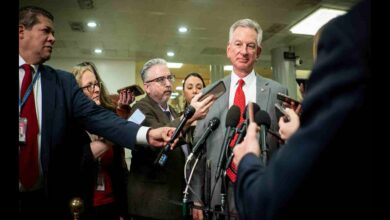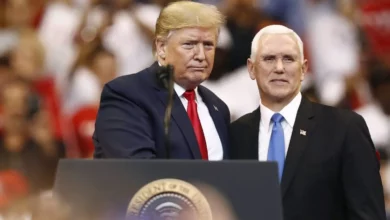North Korean rocket carrying its 2nd spy satellite explodes shortly after launch
Monday’s failed launch came hours after leaders of South Korea, China and Japan met in Seoul in their first trilateral meeting in more than four years.

SEOUL, South Korea — A rocket launched by North Korea to deploy the country’s second spy satellite exploded shortly after liftoff Monday, state media reported, in a setback for leader Kim Jong Un’s hopes to field satellites to monitor the U.S. and South Korea.
Monday’s failed launch came hours after leaders of South Korea, China and Japan met in Seoul in their first trilateral meeting in more than four years. It’s highly unusual for North Korea to take provocative action when China, its major ally and economic pipeline, is engaging in high-level diplomacy in the region.
The launch drew rebukes from the North’s neighbors because the United Nations bans North Korea from conducting any such launches, viewing them as covers for testing long-range missile technology.
The North’s official Korean Central News Agency said it launched a spy satellite aboard a new rocket at its main northwestern space center. But KCNA said the rocket blew up during a first-stage flight soon after liftoff due to a suspected engine problem.
KCNA cited the unidentified vice director of the National Aerospace Technology Administration as saying that a preliminary examination showed that the explosion was related to the reliability of operation of the newly developed liquid oxygen-petroleum engine. He said other possible causes will be investigated, according to KCNA.
Japan’s government briefly issued a missile warning for the southern prefecture of Okinawa, urging residents to take shelter inside buildings and other safer places. The warning was lifted later because the region was no longer in danger, Chief Cabinet Secretary Yoshimasa Hayashi said.

Earlier Monday, North Korea had notified Japan’s coast guard about its planned launch with a warning to exercise caution in the waters between the Korean Peninsula and China and east of the main Philippine island of Luzon during a launch window from Monday through June 3.
North Korea has steadfastly maintained it has the right to launch satellites and test missiles.
Japanese Defense Minister Minoru Kihara called the North’s launch “a serious challenge to the entire world.” South Korea’s Unification Ministry called a satellite launch by the North “a provocation that seriously threatens our and regional security.”
During the trilateral meeting with Japanese Prime Minister Fumio Kishida and Chinese Premier Li Qiang earlier Monday, South Korean President Yoon Suk Yeol called for stern international action if North Korea went ahead with its launch plan.
Kishida, for his part, urged the North to withdraw its launch plan, but Li didn’t mention the launch plan as he offered general comments about promoting peace and stability on the Korean Peninsula through a political resolution.
Some observers say that North Korea’s satellite launch on the first day of its eight-day window might have been aimed at casting a chill over the Seoul-Beijing-Tokyo meeting and registering its displeasure with China. Kim has been embracing the idea of a “new Cold War” and seeking to strengthen ties with Beijing and Moscow to forge a united front against Washington, so China’s diplomacy with Seoul and Tokyo might have been a disturbing development for Pyongyang.
Kim’s primary focus in recent months has been on Russia, as Pyongyang and Moscow — both locked in confrontations with Washington — expand their military cooperation. China, which is much more sensitive about its international reputation, has joined Russia in blocking U.S.-led efforts at the U.N. Security Council to tighten sanctions on the North but has been less bold and open about supporting Kim’s “new Cold War” drive.
North Korea’s Foreign Ministry on Monday strongly criticized a joint statement issued by Li, Yoon and Kishida, calling it “wanton interference in its internal affairs.” The ministry took issue with parts of the joint statement that said the three leaders re-emphasized their existing positions on the issue of denuclearization of the Korean Peninsula.
While North Korea focused much of its criticism on South Korea for allegedly being chiefly responsible for the statement, it is still extremely rare for North Korea to slam a statement signed by China.
The failed satellite launch is a blow to Kim’s plan to launch three more military spy satellites in 2024 in addition to his country’s first military reconnaissance satellite that was placed in orbit last November.




